If you’re interested in complementing a masters in social work with another discipline, then a list of social work dual degree programs may help you narrow down your options.

A social work dual degree can help you prepare for careers that blend social work with a complementary field, such as business, law, education, or criminal justice.
Editorial Listing ShortCode:
This interdisciplinary approach to social work education may provide you with specialized expertise and a competitive edge in this rewarding field.
Master of Social Work Dual Degree Programs

Joint graduate degree programs are a strategic way to earn two degrees in less time than taking each program independently. This may allow you to move ahead into the workforce more quickly.
A dual degree may open the door to a variety of positions in social work, but it also offers the opportunity to branch more broadly into the other area or discipline that you’re studying.
The following are careers related to the field of social work:
- Social worker
- Policy analyst
- Advocate for social programming
- Urban and regional planner
- Community college teacher
- Education administrator
An MSW can also help prepare you for leadership or management positions in nonprofits, community organizations, law, or government agencies.
Editorial Listing ShortCode:
When attending dual degree graduate programs in social work, you’ll take a variety of social-work-specific courses. Some course topics may include:
- History and philosophy of social work
- American racism and social work
- Human behavior in the social environment
- Health and social justice
- Social work in healthcare
- Heterosexism
- The impact of urban policy
You’ll also take a selection of courses related to the complementary dual degree you pursue in conjunction with your M.S.W.
These courses can vary greatly depending on the dual degree you choose to obtain. Areas of study may include:
- Business administration
- Education
- City planning
- Fine arts
- Public health
- Criminology
- Social policy
Earning a masters in social work paired with another complementary discipline may have a number of benefits. The specialized training you receive through a dual degree in social work may increase your job opportunities and your competitive advantage in the job market.
Common MSW Dual Degree Programs

When pursuing dual degree social work programs, there are a number of degree combinations that may suit your needs and help you work toward your career goals.
Whether you’re interested in law, business, education, or other academic areas, there may be a dual degree program that fits your needs.
- MSW / Juris Doctor (JD). Earning an MSW paired with a Juris Doctor (JD) may allow you to pursue positions in law and social policy. This could include focusing on family law, domestic violence, or child advocacy.
- MSW / MBA. Completing an MSW paired with a Master of Business Administration (MBA) may provide the knowledge required to branch into organizational management. Nonprofits, hospitals, community services, and government agencies are a few of the sectors that can benefit from this combination of expertise.
- MSW / Master of Public Health. Pursuing MSW / MPH dual degrees may allow you to work in clinical or social areas of health. Clinical areas of health include health promotion within community settings, while social areas of health include public policy.
- MSW / Master of Public Administration. Earning an MSW paired with an MPA can help prepare you to take on leadership and management roles in various industries. These include government institutions, nonprofits and community-based organizations, and private human-service-focused organizations.
- MSW / Master’s in Criminology. Completing an MSW complemented by a master’s in criminology may provide you with the knowledge required to pursue a career working with different forensic populations. This can include adult offenders, young offenders, inmates within the prison system, parolees, and victims.
- MSW / Master of Education (MEd). Pursuing an MSW with an MEd may lead to positions in leadership across the field of education. It can also help prepare you for roles in education advocacy and policy development.
- MSW / Master’s in Theology. Earning an MSW paired with a master’s in theology can allow you to pursue a role that blends social service with theology, specifically as it relates to counseling services. Example roles include pastoral counselor, pastoral education supervisor, or executive director.
Each program can look different depending on the school you choose to attend. In some cases, course schedules are customized to the specific dual degree option. The specific dual degree combination that works for you may depend on your overall academic and career goals.
Social Work Careers & Salaries
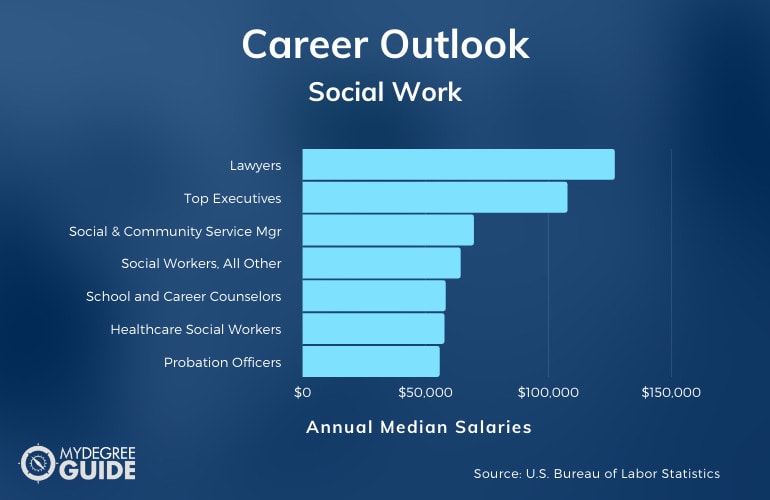
Earning a dual degree in social work can open the door to work in a number of different fields, such as government, family services, criminal justice, law, healthcare, nonprofit, and education.
This may include working in federal or state offices, counseling services, social services and child welfare, prisons, youth detention centers, schools, law firms, hospitals, and mental health and substance abuse treatment facilities.
Editorial Listing ShortCode:
According to the Bureau of Labor Statistics, a dual degree in social work can lead to a variety of opportunities, depending on the additional area of specialty that you pursue.
| Careers | Annual Median Salaries |
| Lawyers | $126,930 |
| Top Executives | $107,680 |
| Social and Community Service Managers | $69,600 |
| Social Workers, All Other | $64,210 |
| School and Career Counselors and Advisors | $58,120 |
| Healthcare Social Workers | $57,630 |
| Probation Officers and Correctional Treatment Specialists | $55,690 |
| Mental Health and Substance Abuse Social Workers | $48,720 |
| Child, Family, and School Social Workers | $48,430 |
| Health Educators and Community Health Workers | $48,140 |
Across the various positions that you may qualify for with a dual degree in social work, a number of roles are predicted to experience job growth.
According to the Bureau of Labor Statistics, these positions include top executive (4% job growth), lawyer, (4%), correctional treatment specialist (4%), school and career counselor (8%), social workers (13%), health educators (11%), social and community services manager (17%).
Social Work Dual Master’s Curriculum

While specific course sequencing can vary greatly depending on your dual degree selection, common social work courses include:
- History and Philosophy of Social Work and Social Welfare: This course takes a look at the history of social work and social welfare in the United States.
- Human Behavior in the Social Environment: This course is an overview of theories and concepts related to individual and family social interaction throughout various contexts and settings.
- American Racism and Social Work Practice: You’ll analyze racism in America in relation to social work, including institutional systems of racism.
- Foundations of Social Work Practice: You’ll explore evidence-based practices in social work for working with groups, families, and individuals as well as communities as a whole.
- Mental Health Policy: You’ll take a look at the process for developing mental health policy in the context of social work as well as the impact on health equity as it intersects with race, disability, and gender.
- Policy Analysis and Coalition Building: This course is an overview of skills required in the policy analysis and development process, along with exploring various social influences on public policy.
- Clinical Social Work Practice: You’ll analyze evidence-based frameworks utilized in the clinical practice of social work.
- Policy Options for Children and Their Families: You’ll review policy options for child welfare as it relates to children and their families.
- Heterosexism: You’ll take a look at inequity in society through the lens of lesbian, gay, bisexual, and transgender people.
- Social Statistics: This course examines statistical methods and approaches used within the field of social work.
In order to complete a dual degree educational program, many schools require you to complete the courses that make up each individual program, using select course credits for both programs as approved.
Dual Masters Admissions Requirements

Admission requirements for dual masters programs may vary from one school to the next, but common criteria can include:
- Bachelor’s degree. Holding an undergraduate degree from an accredited institution is a common requirement for a masters program.
- Official transcripts. You’ll submit transcripts for all postsecondary studies completed.
- GRE or GMAT scores. Though this requirement is becoming less common, some schools may still request that you provide standardized test scores.
- Letters of recommendation. Schools may request reference letters from academic or work colleagues.
- Statement of intent. You’ll outline your educational goals and interest in the program.
For some schools, you may only need to apply once to a dual degree program, but other schools require you to apply to each program separately.
Accreditation
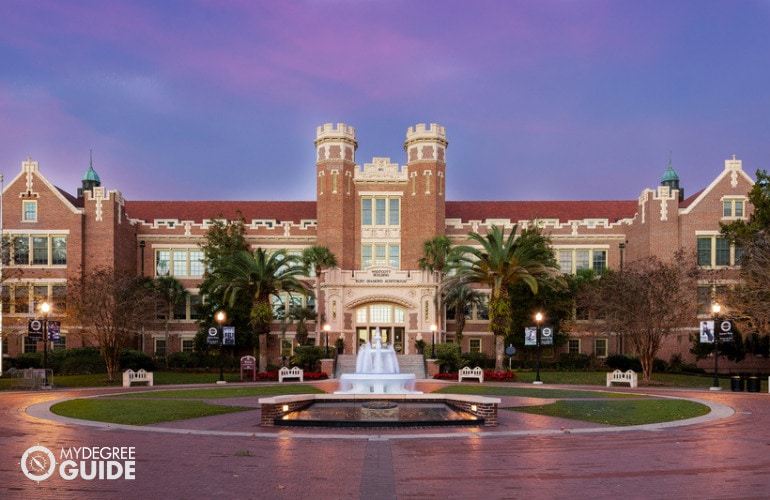
Earning your degree from a regionally accredited institution verifies that your education meets predetermined academic quality standards.
The accreditation status of the school and programs you earn your degrees from may influence your ability to become licensed with professional bodies. Accreditation can also impact your ability to transfer credits from one school to the next and your ability to register for a PhD program down the road.
Editorial Listing ShortCode:
The accreditation status of your master’s program may also influence hiring decisions by potential employers. For more information on the accreditation status of the school you’re interested in attending, you can visit the US Department of Education’s website.
Financial Aid and Scholarships

All educational programs, especially graduate-level ones, come with a price tag. The costs of pursuing a dual master’s degree may be eased through a variety of financial aid options. If you qualify, financial aid options can include:
- Loans and grants through federal and state aid
- Scholarships offered by private and public organizations
- Employer training programs, if applicable
If you’re currently employed, your employer may offer professional development funding options that can help you cover the costs of your education. For more information on financial aid opportunities that may be available to you, you can visit the US Department of Education’s website.
What Degree Does a Social Worker Need?

In many states, a master’s degree in social work is required in order to qualify for licensure as a social worker and to work in clinical and school settings.
In some cases, there may be social work positions available that only require a bachelor’s degree in social work in order to qualify. According to the Bureau of Labor Statistics, these positions would be more administrative roles, such as caseworkers or mental health assistants.
Notably, some states may require non-clinical social workers to obtain a license in order to practice.
What Degrees Go Well with Social Work?

Depending on your career goals, there may be a number of degrees that pair well with a master’s in social work. In particular, disciplines that expand on areas of human services, law, and equity tend to be a good match.
Some examples of disciplines that complement social work include public health, public administration, theology, criminology, law, and education. Other degrees, like those in business and leadership, may also complement a degree in social work nicely.
What Is a Dual Degree?

A dual degree is a pairing of two separate degree programs. It is common for dual degree programs to consist of different but complementary disciplines to provide interdisciplinary education and level of expertise.
The specific structure of a dual degree program can vary depending on the school and the combination of degrees you choose to pursue.
A number of schools require you to apply for each program individually and complete the course requirements for each. Some courses may be eligible to be used as course credits in both programs, reducing the total length of time to complete both degrees.
What Can I Do with a JD/MSW?

Earning a JD/MSW dual degree may prepare you for a rewarding career in law. Graduates can choose to go on to take the bar so they can act as a lawyer or attorney.
The combination of education between a JD and MSW program can help provide you with a greater understanding of the complexity between social work and legal issues. Law areas that intersect with social work issues include family law, health policy law, employment law, disability law, and immigration law, among others.
Editorial Listing ShortCode:
Common positions can include lawyer, social worker, victim advocate, or manager in a nonprofit setting.
How Long Does It Take to Get an MSW Dual Degree?

While each dual degree program structure is different, it can be possible to graduate from a dual degree masters program in social work within 3 years.
A number of factors can influence how long it will take to complete a dual degree program, including whether you attend on a full-time or part-time basis. For example, an individual masters program that’s 36 credit hours may be completed in 1 year with full-time, year-round enrollment and no thesis requirement.
Specific program requirements, such as clinical placement hours, internship requirements, or thesis requirements, can add some additional time to completion. If you would like to complete your program more quickly, you may want to look into the accelerated MSW programs that some universities offer.
What’s the Difference Between a Dual Degree vs. Double Major?
Here are some important differences between a dual degree and a double major:
| Dual Degree | Double Major |
|
|
Additionally, a double major may offer more flexibility when it comes to choosing your own path. Degree combinations for a dual degree program can only be created by a school, not individual students.
Is a Dual Degree in Social Work Worth It?

Yes, a dual degree in social work is worth it for many students. A dual degree in social work may provide you with the specialized knowledge required to qualify for various positions, depending on your chosen complementary studies.
Common careers in this field include social worker, lawyer, community services manager, school and career counselor, correctional treatment specialist, and community college instructor.
Editorial Listing ShortCode:
The Bureau of Labor Statistics projects 13% job growth for social workers over the next ten years. Other positions in management and leadership may also be available to professionals who have earned a dual degree in social work along with extensive experience.
Universities Offering Master of Social Work Dual Degree Programs
Methodology: The following school list is in alphabetical order. To be included, a college or university must be regionally accredited and offer degree programs online, campus or in a hybrid format.

Aurora University offers online dual degree programs for a Master of Social Work and a Master of Business or a Master of Public Administration. The programs require students to complete 84 credit hours, and classes are 8 weeks long. Both programs require applicants to have a bachelor’s degree with a minimum GPA of 3.0.
Aurora University is accredited by the Higher Learning Commission.

Boston University offers a number of dual degree programs. Students may pursue a Master of Social Work along with a master in one of the following areas: Public Health, Education, or Theology.
The time needed for completion depends on the program but tends to be 2.5 to 4 years. All but the dual degree with a Master of Theology may be taken part-time.
Boston University is accredited by the New England Commission of Higher Education.
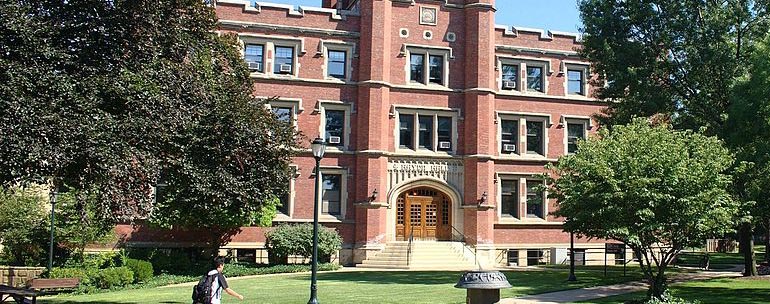
Case Western Reserve University offers a number of dual degree programs. Students may pursue a Master of Social Work along with a master in one of the following areas: Public Health, Nonprofit Management, Law, Bioethics and Medical Humanities, or Business.
Those interested in a dual degree must apply and be accepted by both degree programs separately.
Case Western Reserve University is accredited by the Higher Learning Commission.

New York University’s Social Work program offers 4 different dual degree options for a Master of Social Work along with another degree.
Degrees that can be combined with the MSW are Master of Arts in Child Development, Master of Public Health, Juris Doctorate, and Executive Master of Public Administration. Credit requirements vary from program to program. Applicants must be admitted into both programs before they are eligible to pursue a dual degree.
New York University is accredited by the Middle States Commission on Higher Education.

Rutgers University offers six different dual degree programs where students can obtain a Master of Social Work and another degree.
Degrees that can be combined with the MSW are MA in Criminal Justice, Master of Public Health, Master of Public Policy, Juris Doctorate, PhD in Social Work, and Master of Divinity. Each program usually takes 2 to 4 years to complete. Applicants must be admitted to both programs to pursue a dual degree.
Rutgers is accredited by the Middle States Commission on Higher Education.
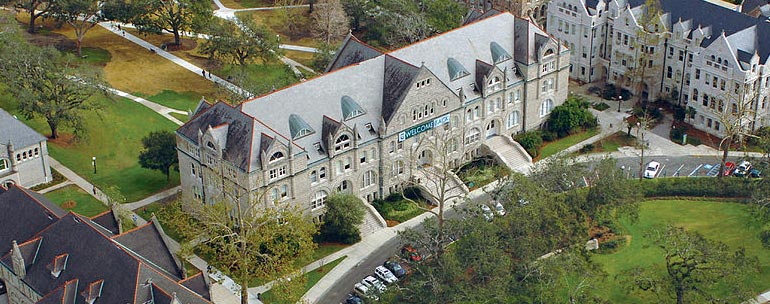
Tulane University offers 3 dual degree programs to pursue a Master of Social Work along with another degree.
Options to combine with the MSW are Master of Science in Disaster Resilience Leadership, Master of Public Health, or Juris Doctorate. Most programs are on campus, but the Dual MSW and MS-DRL can be taken online. Applicants must have a GPA of 3.0 and be accepted into both of the programs they want to study for their dual degree.
Tulane University is accredited by the Southern Association of Colleges and Schools Commission on Colleges.
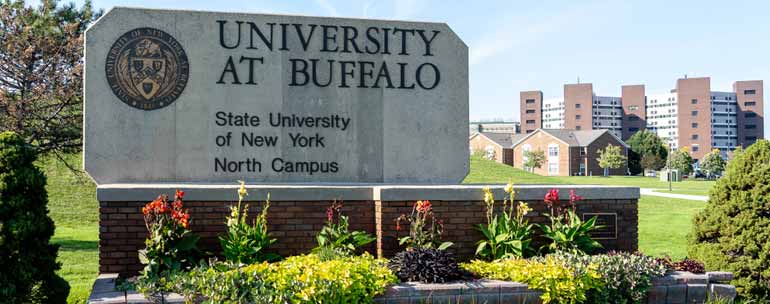
The University of Buffalo offers a dual degree program option to students studying a Master of Social Work.
Students may study for an MSW along with a Master of Public Health or a Master of Business Administration. Both programs can usually be completed in 3 years and require students to study full-time. Applicants must have a minimum GPA of 3.0 and 3 references.
The University at Buffalo is accredited by the Middle States Commission on Higher Education.

The University of Denver offers dual degree programs for students in the Master of Social Work program.
Students can pursue an MSW along with a Master of Public Health, a Master of Business Administration, a Juris Doctor, or a Master of Legal Studies. Each program can be completed on campus. Applicants must apply for each program individually.
The University of Denver is accredited by the Higher Learning Commission.
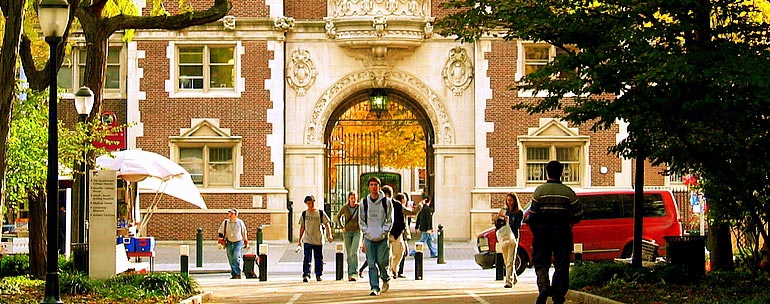
The University of Pennsylvania offers a dual degree program for students interested in obtaining a Master of Social Work.
Students may obtain an MSW and another master’s degree. Options include Law, Business Administration, Bioethics, City Planning, Fine Arts, Public Health, Criminology, Education, Nonprofit Leadership, or Social Policy. Applicants must be in a full-time, 2 year program.
The University of Pennsylvania is accredited by the Middle States Commission on Higher Education.

The University of Washington offers a concurrent degree program for students in the Master of Social Work program. Students may obtain an MSW along with a Master of Public Administration or a Master of Public Health. To be eligible for the concurrent degree program, applicants must be accepted into both individual master’s programs.
The University of Washington is accredited by the Northwest Commission on Colleges and Universities.
Getting Your Dual Masters Degree in Social Work Online

A dual degree program can allow you to earn a graduate degree in social work along with an additional degree in a separate but complementary field.
Some fields that are complementary to social work include law, criminology, education, or public administration. Earning a dual degree can allow you to complete two graduate-level degrees at once, which may provide you with a more competitive edge in the job market.
If you’re interested in earning your dual masters degree in social work as conveniently and efficiently as possible, then you may want to explore online dual degree programs from accredited universities.
Regardless of whether you’re earning an associate’s degree in social work or a double master’s, you’ll be embarking on a career aimed at helping others.

